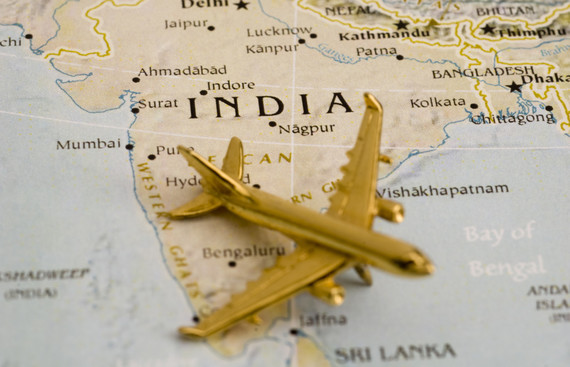Nation to board: the UK moves India from 'red' to 'amber' list

Witnessing the stable Covid situation has encouraged many countries to open borders to travellers from India. Good news from the UK has provided hope for travellers from the country; the United Kingdom (UK) has now moved India from the "red" list to "amber," a categorisation created for international travel during the Covid-19 pandemic. Well, the classification eases the travelling protocols for foreigners travelling to the UK.
The British traffic light system, as it says, classifies countries into three categories: red, amber, and green. The categorisation is based on "risks posed by individual countries and regions." The UK government is analysing the traffic-light system at the interval of every three weeks. And it comes up with the latest announcement of relief for Indian Diasporas, as India comes under the amber list. However, the UK also stated that "if the situation changes suddenly, a country or territory may be moved between lists without warning.”
How the traffic-light system works
Reaching the UK from any other country depends on where you have ten days before your arrival. The three categories of the traffic light stand for different testing and isolation guidelines.
Red list: The UK has advised its citizens not to travel to red list countries. Furthermore, only British and Irish citizens, or those who have the right to reside in the UK, can enter the country from the red list locations. After arriving in the UK, travellers will be subject to restrictions. They must remain in hotel quarantine for ten days and undergo three Covid19 tests, including one before leaving their home country.
Amber list: Entering the UK from an Amber List location needs three Covid19 tests: the first, at least three days before departure; the second, the day of arrival or before the second day; and the third, the eighth day or later. The 10-day home quarantine is also mandatory. For fully vaccinated British citizens, no isolation or 8-day testing is required. And the fully vaccinated people in the United States or many European countries do not require to be isolated after arriving to the UK or on the eighth day of tests.
Green list: Before entering the UK, the protocol demands a Covid-19 test. Upon arrival, a second test is mandatory to be taken on or before the second day. If the test result is positive, then only quarantine is required. However, some countries are at risk of moving from green to amber; these come under the "Green watchlist".
As India has come under the amber list, Indians travelling to the UK need to follow only the required instructions. It includes the three Covid-19 tests, as mentioned above, that have to be taken. Due to the second wave of Covid-19 and some cases of the Delta variant in India, the UK had banned the travellers from the county unless they were British citizens.
UK Transport Secretary mentioned through a tweet, "UAE, Qatar, India and Bahrain will be moved from the Red List to the Amber List. All changes come into effect Sun 8th August at 4am."
As of now, the UK hasn't recognised Indian vaccines - Covishield (Serum Institute of India), Covaxin (Bharat Biotech) or Russia's Sputnik. But Covishield, the Indian version of Oxford-AstraZeneca, is expected to get approved. And a representative of the UK's Department of Health and Social Care stated, "We recognise there are a large variety of Covid-19 vaccines being administered worldwide and work is ongoing to determine which non-UK vaccines and certification solutions to recognise." (Source-The Indian Express)
Status of travel to other international destinations
The UK's decision has been made for relaxing travel regulations for some Indian passengers in several other countries, including Spain, France, Germany and the United Arab Emirates. Although the Indian government has banned regular international flights, the flights still operate under the air bubble arrangements with many countries.
Nevertheless, countries such as The Philippines, Australia, Bangladesh, Indonesia, Italy, Kuwait, New Zealand, Oman, Singapore, etc., are still closed to travellers from India. Yet, a few have eased restrictions for students. As per a report, the deployment of Delta Covid-19 variants and the Covid-19 situation of the country might be the reasons behind the country that extended the ban on Indian travellers.
Minister of State, External Affairs, V Muraleedharan has said to Parliament that the United States, Britain, Canada, Germany and the Netherlands had accelerated restrictions on Indian students. In so far, the United States, the United Kingdom, Canada, Ireland, Germany, the Netherlands, Belgium, Luxembourg, Georgia and other countries have relaxed travel restrictions for Indian students, and it is expected that more countries will open up travel in the future, the minister added.
Moreover, the other countries could now consider resuming the gateway to Indian travellers. As the limitation on international travelling is also affecting the Indian as well as the global economy in several ways. And vaccine has rolled out in maximum number with the declining rate of Covid-19 positive result in India. Therefore, other countries too need to consider allowing open their borders with required protocols.
Read More News :


.jpg)
